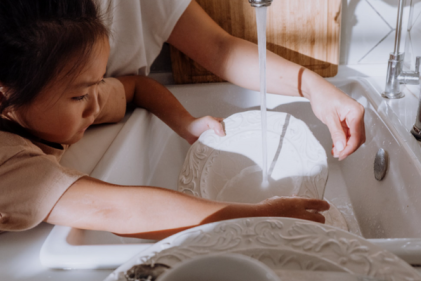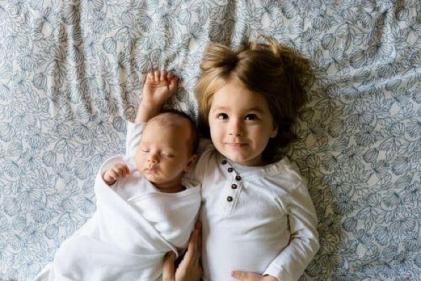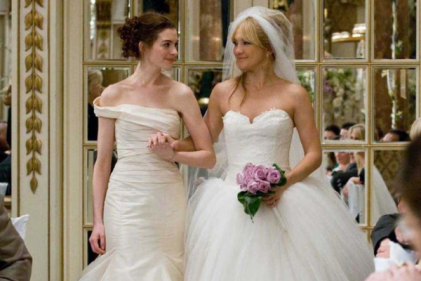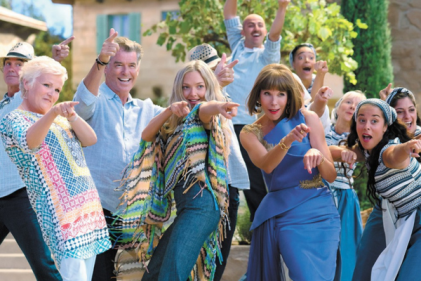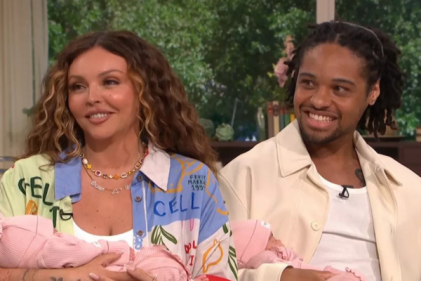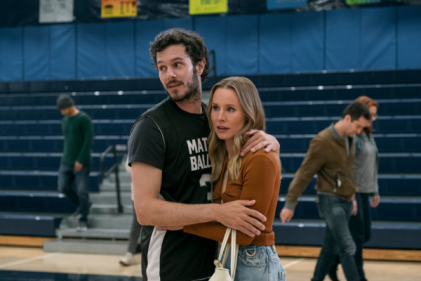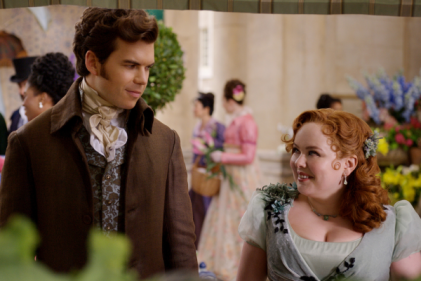It's often said that animals can help children with autism and this video shows there's a bit of truth in there.
Six-year-old Iris Grace Halmshaw of Leicestershire in England was once afraid of water but can now be seen swimming alongside her feline friend who helped her overcome her fears.
Not only do the inseparable pair practise their skills together in a swimming pool, they also share a soak at bath time - an everyday event that once filled Iris's mother with dread as just one drop of water could terrify her little girl.
As the video shows, they do everything together with the cat beside her in the garden as she looks at books and joining the family on canal boat trips, bike rides and walks on a lead.
And since Iris's parents bought the Maine coon cat for their daughter two years ago, she has started to speak - something doctors warned may never happen.
Before her parents brought the moggy home, Iris was already an internationally acclaimed artist so talented that her work can sell for as much as £1,500 (approx. €1,900) and had a huge following.
The home-educated child has been producing astonishing Monet-style landscapes since she was three, when mother Arabella Carter-Johnson devised art sessions to help her daughter to concentrate.
It was her fans online who encouraged Arabella to look into getting a Maine coon cat to keep Iris company and help her to open up further, after equine therapy didn't help.
The young artist's online followers now love hearing about her adventures with Thula, who has become a big influence in her artwork.
Last month, Iris's mother wrote a book about her daughter's talent and incredible bond with her cat.
In it, she says that Iris and Thula were like old friends from the moment they brought the kitten home.
She wrote: "Thula was at Iris’s side from the moment she saw her and slept in her arms during her first night like a guardian angel."
"When Iris was looking at her books, she would delicately feel Thula’s ears and her long whiskers, or hold her tail at the tip, casually twiddling with the fur as if it were her own."
Soon after, Arabella says Iris Grace seemed to have developed a spring in her step and started to communicate.
"'Sit, cat' she would say when Thula was trying to play on her iPad. She said it with such authority that the kitten immediately sat,' Arabella explained.
"Unlike most children of Iris’s age would, she didn’t maul, stroke or pick up the kitten constantly. Their relationship was based upon companionship. Thula watched with great interest as Iris played, joining in whenever she could."
"When Iris stood at her table playing with play dough, Thula sat beside her, mimicking Iris’s movements.'I couldn’t believe what I was seeing: this tiny kitten was implementing the basics of play therapy."
"The more I thought about it, the more I could see what a perfect companion a cat was for a child on the spectrum."
"They understood one another in a way that we would always struggle to. There was an undeniable bond between them – a powerful connection that we had been searching for all this time."
"If Iris woke at night, Thula was there to settle her. It was as though she instinctively knew what to do. She would bring Iris a small toy in her mouth and drop it beside her."
Iris would play for a while with the toy and the movement in her fingers seemed to calm her.
"Thula would then snuggle up beside her and purr, while Iris gently settled and fell back to sleep. I would watch them from the doorway."
Arabella told BBC Breakfast on Sunday: "When we got the diagnosis for autism the doctors were quite depressing in what they thought was possible."
"She was severely autistic and they said she may never talk. She may never be able to develop the relationships that other children can have."
"And then we got Thula and everything changed, there was a remarkable difference. She was able to communicate with us about what she wanted, it started with "more cat" and "sick cat" - she was giving her instructions."
"We've got this saying that different is brilliant and I really mean it - autism to me now is brilliant."
"It doesn't have to be this grim diagnosis. It can be challenging - very, very challenging at times - but I feel that if you work with the child and work with their interests you will see a progression, you'll see changes."
So far, the video has been viewed by nearly 100,000 on her YouTube channel and Facebook page.
You can watch the video below.






